Death of a Bookstore
An independent bookstore opened in my New York City neighborhood last year. It lasted just nine months.
There are places I remember
All of my life, though some have changed
Some forever, not for better
Some gone and some remain
In My Life, The Beatles
My local bookstore died today. Or maybe it was yesterday. I don't know. Either way, it’s gone. It didn't even survive a year. When I walked by this morning, the display windows were covered with brown wrapping paper. I stood and stared. Across the sidewalk, the surly street vendor sat behind a long table with his usual assortment of merchandise. Tattered copies of used books, batteries, knit caps, medical masks.
“What did they expect?" he muttered. "You can buy any book they got for less online. Stupid.” He looked at me. "You miss 'em? I don't miss 'em. F--k 'em." New York can be a cold town.
Shakespeare & Co. in his final days
Shakespeare & Company opened last spring at the corner of West 105th Street and Broadway on the Upper West Side of Manhattan, a five minute walk from my home. When I saw the signs announcing that it was coming, I was pleased but not optimistic about its chances of survival. Book stores can be a very precarious business. An independent bookstore in a small space in Manhattan is especially precarious. I figured rent alone must be $10,000. Maybe more; maybe a lot more. Even at $10,000, they’d have to sell a whole lot of books at a time when Amazon dominates the market.
Still, I vowed to do my part to help. I would buy at least one book a month, even though it would cost more than the Amazon price for an e-book. (I read almost exclusively on a Kindle.) The first book I purchased was a paperback edition of Why Orwell Matters by Christopher Hitchens. George Orwell, who worked in a second-hand bookshop in London in the 1930s, once wrote an essay, Bookstore Memories. "Anyone with a good pitch and the right amount of capital, any educated person ought to be able to make a small secure living out of a bookshop," he wrote. Not anymore.
Shakespeare & Company was everything a bookshop should be. It was small but cozy. It carried a decent selection. It had a wooden floor and several small tables where the latest fiction and nonfiction hardback releases were on display. There was a separate table for new paperbacks. Children’s books and art books were in the rear of the space. A tall wall of shelves ran half the length of the store and held a mixture of paperbacks and hardcovers, some old, some new but not new enough to earn a place on the tables. There was another smaller case by the cashier on which copies of books recommended by the staff were prominently featured. Below each was an index card containing brief, handwritten reviews. The room had the pleasant earthy aroma of wood. The salespeople were young, polite and helpful. The store did not sell coffee or anything other than books with the exception of a small selection of moleskins (plenty of readers fancy themselves writers, after all). There was nowhere to sit. It was just a bookstore. It was perfect.
A bookstore is more than a retail business. It’s a refuge, a sanctuary, a kind of museum. You can stay as long as you want, and if you end up not buying anything, no one cares. I used to drop by a bookstore just to see what I might find. It’s the antithesis of shopping. A book is rarely something you need. It's more like exploration. An adventure of discovery. It’s personal, intimate. Books aren't just "items." They are companions. My brother once told me (when I was urging him to reduce the clutter of books in his apartment), “My books are my friends.”
Powell’s bookstore, Portland, Oregon
Pickwick Books, Hollywood, Calif. Photo credit: Los Angeles Dept. of Water & Power
Over the years, I have visited some great bookstores. They are to me as memorable as the great sights of the world, like the Eiffel Tower or Grand Canyon or Kilimanjaro. Powell's in Portland, Oregon. City Lights in San Francisco. Pegasus in Berkeley. Arundel in Seattle. The Harvard Coop in Cambridge, Massachusetts. The Strand in New York City. They all still exist. Others are gone. Coliseum Books on West 57th in New York. Pickwick Books in Hollywood, where my mother would take my brother and me, drop us off and we'd peruse the offerings for hours. Kroch and Brentano in Chicago's Loop. The original Foyle's on a stretch of Charing Cross Road in London that once teemed with bookstores. (Foyle's was purchased by a large British bookstore chain in 2018, and relocated from its charmingly ramshackle location to antiseptically new quarters. It still bears the Foyle's name, but it's not the same.)
The original Foyle’s, London. Photo credit: Fin Fahey
Bookshops may seem like a relic of the long ago past, but retail stores dedicated solely or mainly to selling books are a relatively modern phenomenon. Until the 1920s, there were few stores in the U.S. outside of big cities and college towns that stocked and sold books. For most Americans, if you wanted to buy a specific book, you pretty much had to mail order it from the publisher.
By the late 1930s, retail bookstores had taken off. According to a 2024 New Yorker article, there were 2,800 U.S. book stores in 1939. After the Second World War, the population grew and, along with it, the appetite for books, especially inexpensive paperbacks.
"Publishers needed more places where people could shop for their product. The market responded with the chain store," wrote Louis Menand in the New Yorker article, Are Bookstores Just A Waste of Space? “The market responded with the chain store.”
The first large chain stores began in the 1960s. Waldenbooks, which had begun in the 1930s as a book rental service, opened in 1962. B. Dalton followed four years later. Twenty years later, they accounted for 24 percent of U.S. book sales.
In 1971, Borders began as a single bookstore in Ann Arbor, Michigan, and Barnes & Noble opened in Manhattan, primarily as a college textbook outlet.
By the late 1990s, Barnes & Noble and Borders were together selling 43% of the books in America, fueled by deep discounts of best-sellers. For the little guys - independent bookstores - it was like getting hit by a tsunami. Half of them - over 2,000 stores — went bust between 1980 and 2011. On a three-block stretch of Fourth Avenue in New York’s Greenwich Village, there were once 20 independent bookstores. It was known as Book Row. Today, only one of them remains, the Strand, which moved a block away.
The chain stores' golden age didn't last, of course. They would come under competitive pressure from a new player on the scene: Amazon. Borders went under in 2011. Barnes & Noble, the only national chain still in existence, closed roughly 100 stores since its peak of 726 in 2008.
Today, Amazon commands half of all book sales (including 80 percent of online sales).
Midtown Scholar Bookstore, Harrisburg, PA
But some independent bookstores do survive and even thrive.
Eric and Kathy Papenfus opened the Midtown Scholar Bookstore in Harrisburg, Pennsylvania, which sells both new and used books, in 2001. It's going strong. It has a coffee shop, chairs and tables where browsers can sit, and a meeting space where they hold frequent author talks.
"We try to do a lot of programs," Eric Papenfus told me. "One of the keys to having a bookstore in this day and age is you want to create a space where people can come, talk about the book, meet the author and engage in discussion; to be a sort of counteraction to some of the solitary nature of today's society."
I never did buy a book each month at Shakespeare & Company as I had vowed. I bought five books, maybe six. About three weeks ago, I walked past and saw the signs in the windows announcing that it would be closing. Another handwritten sign said everything would be discounted 15 percent. I went inside. The store was crowded, crowded meaning a dozen people instead of the usual three or four. Nothing like the impending demise of a store - and clearance discount - to bring people in, like vultures circling carrion. I bought Creation Lake by Rachel Kushner.
I asked the young woman at the cash register why they were closing. She shrugged.
“Some kind of corporate thing,” she said, adding that another Shakespeare & Company on the Upper East Side was also going out of business and, it was rumored, she added, that the last remaining outlet, by Lincoln Center, would also be closed.
Later, I read in the online edition of The West Side Rag, a neighborhood newspaper, that one of the owners said, “We just weren’t able to get the sales levels we needed to make the store sustainable.”
Really, it never had a chance.




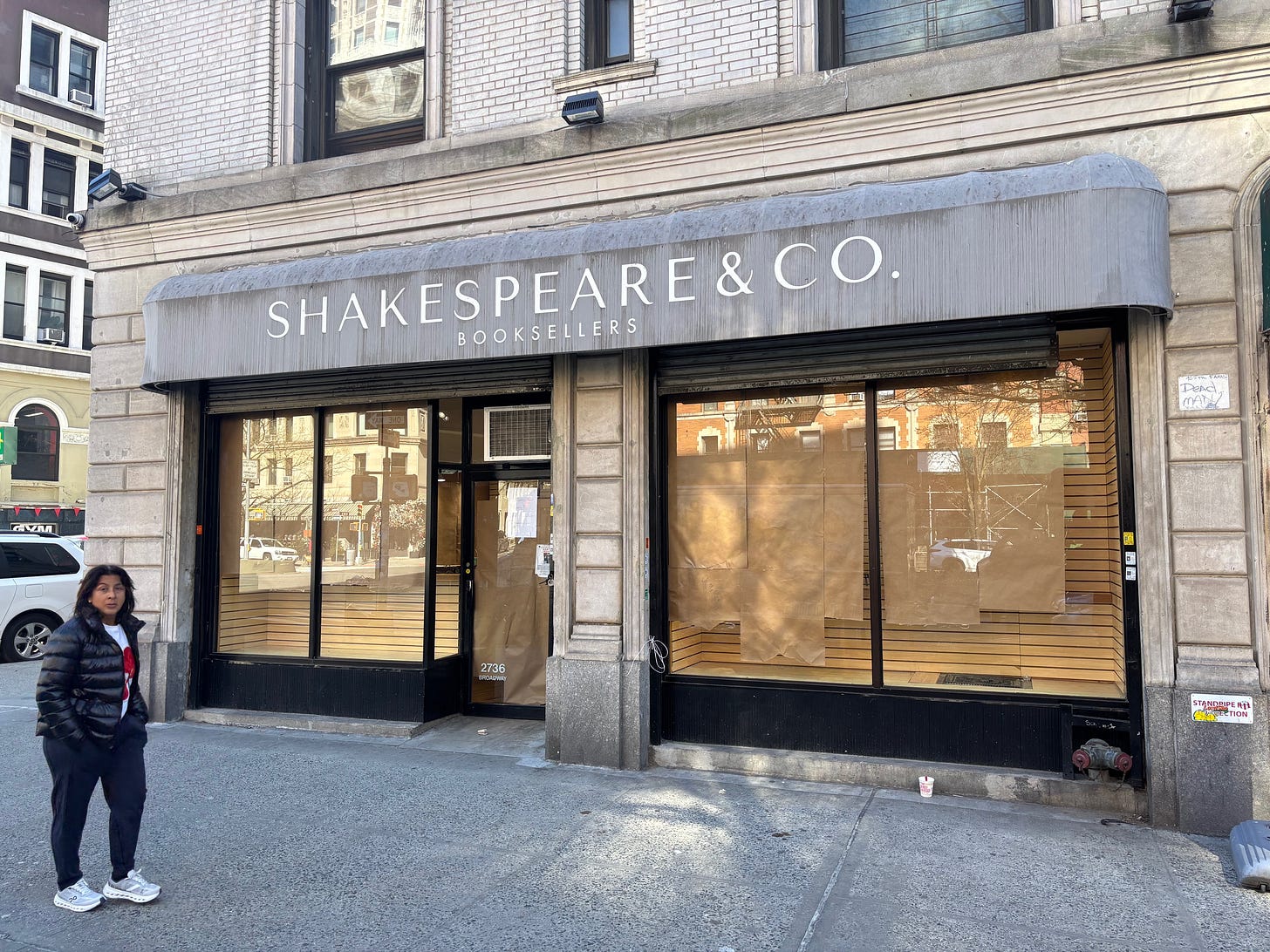
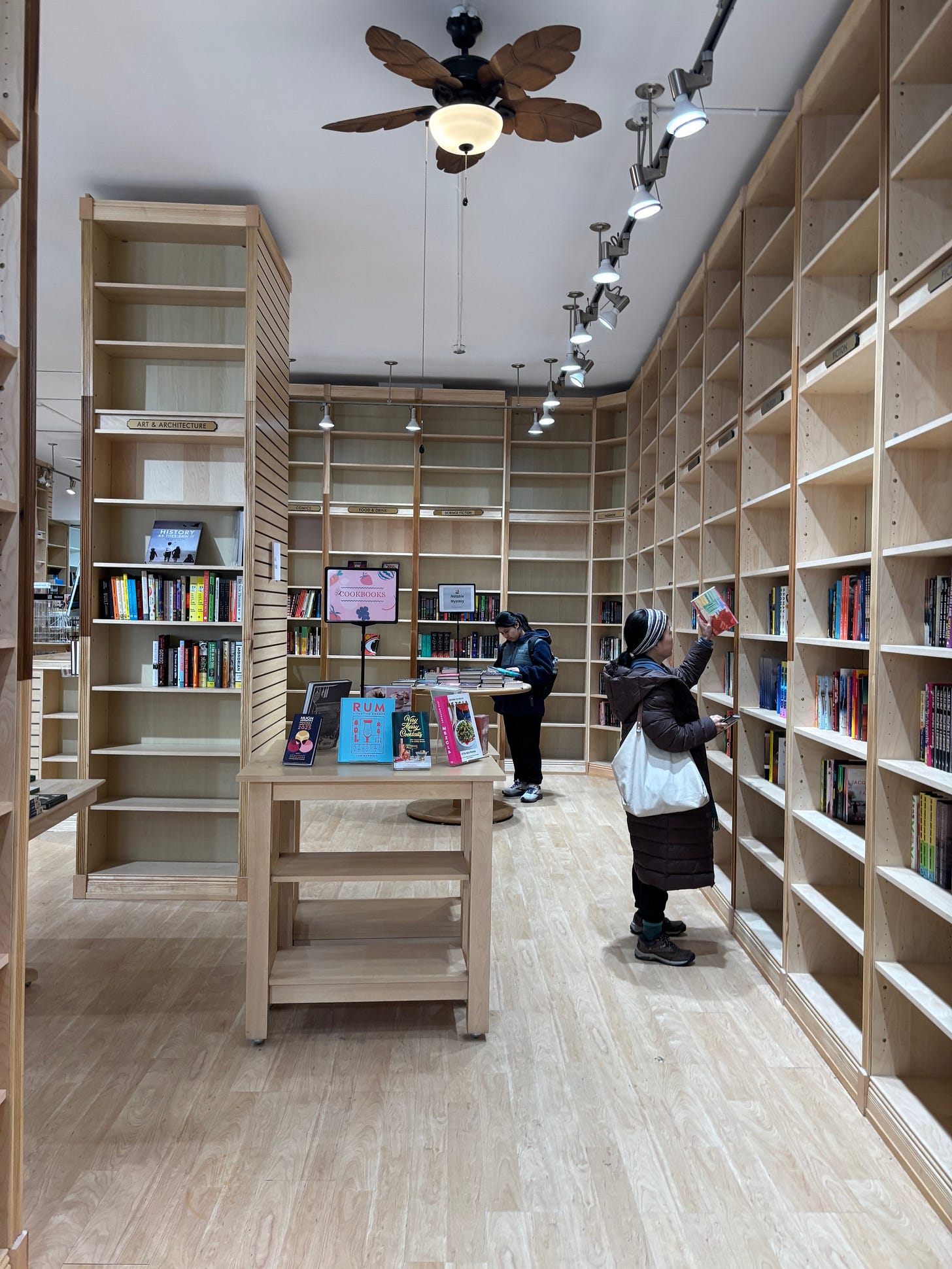
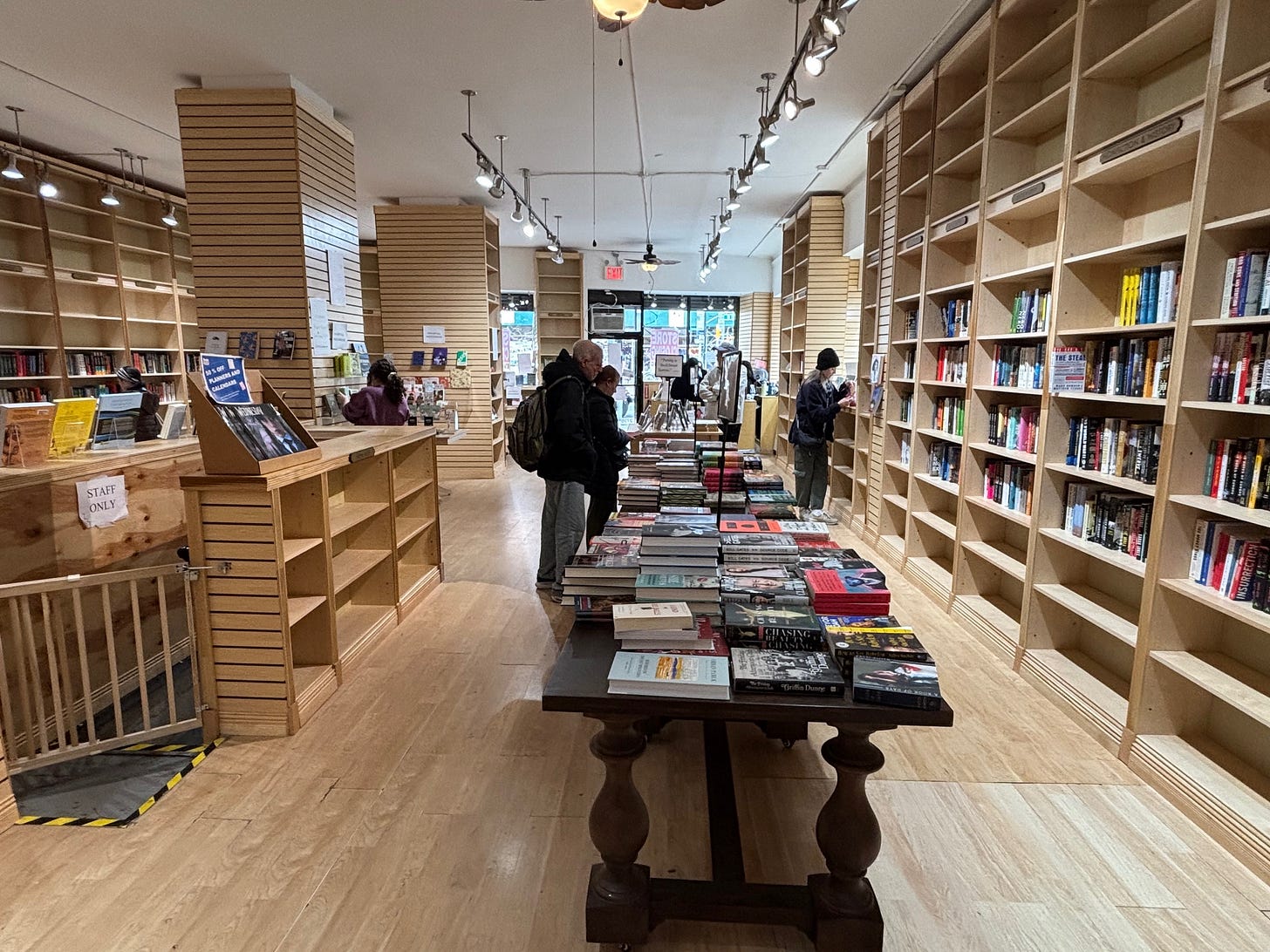
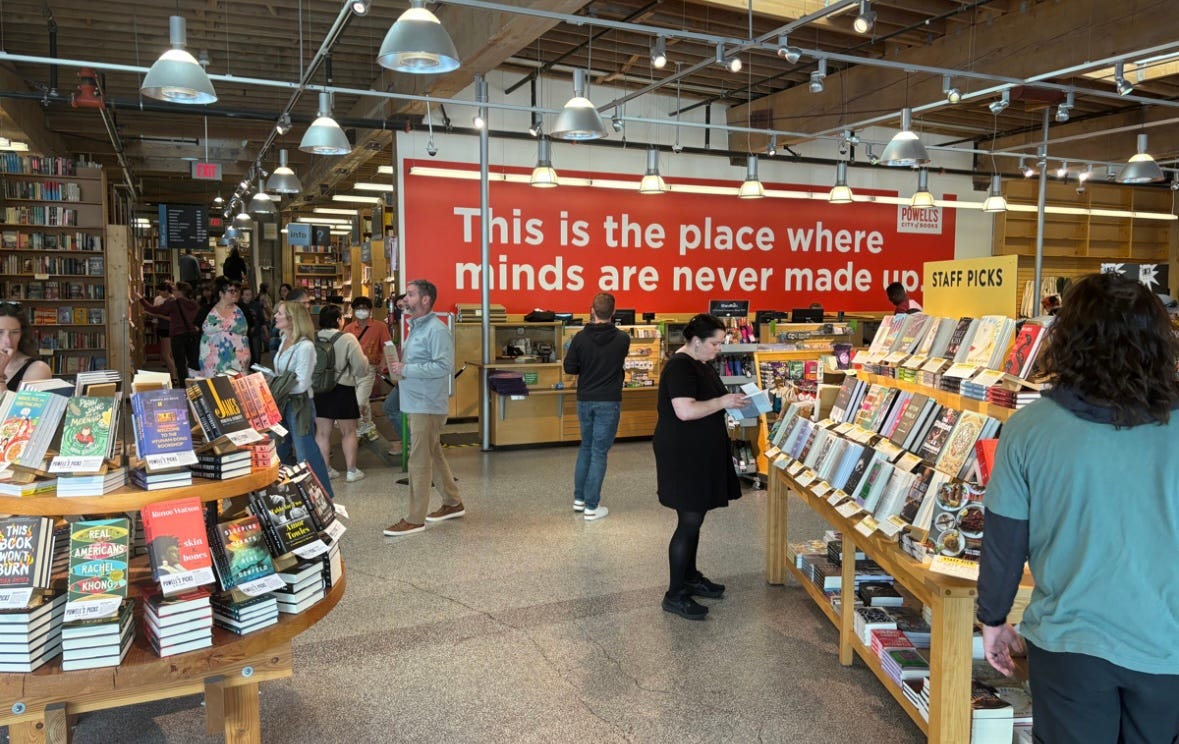


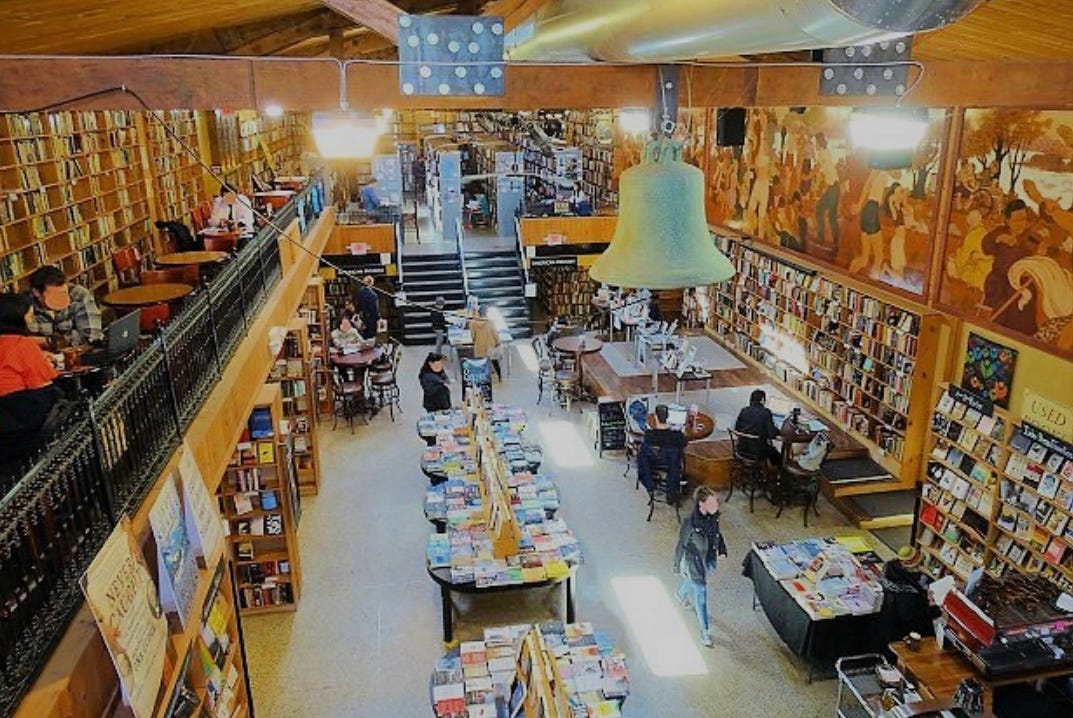
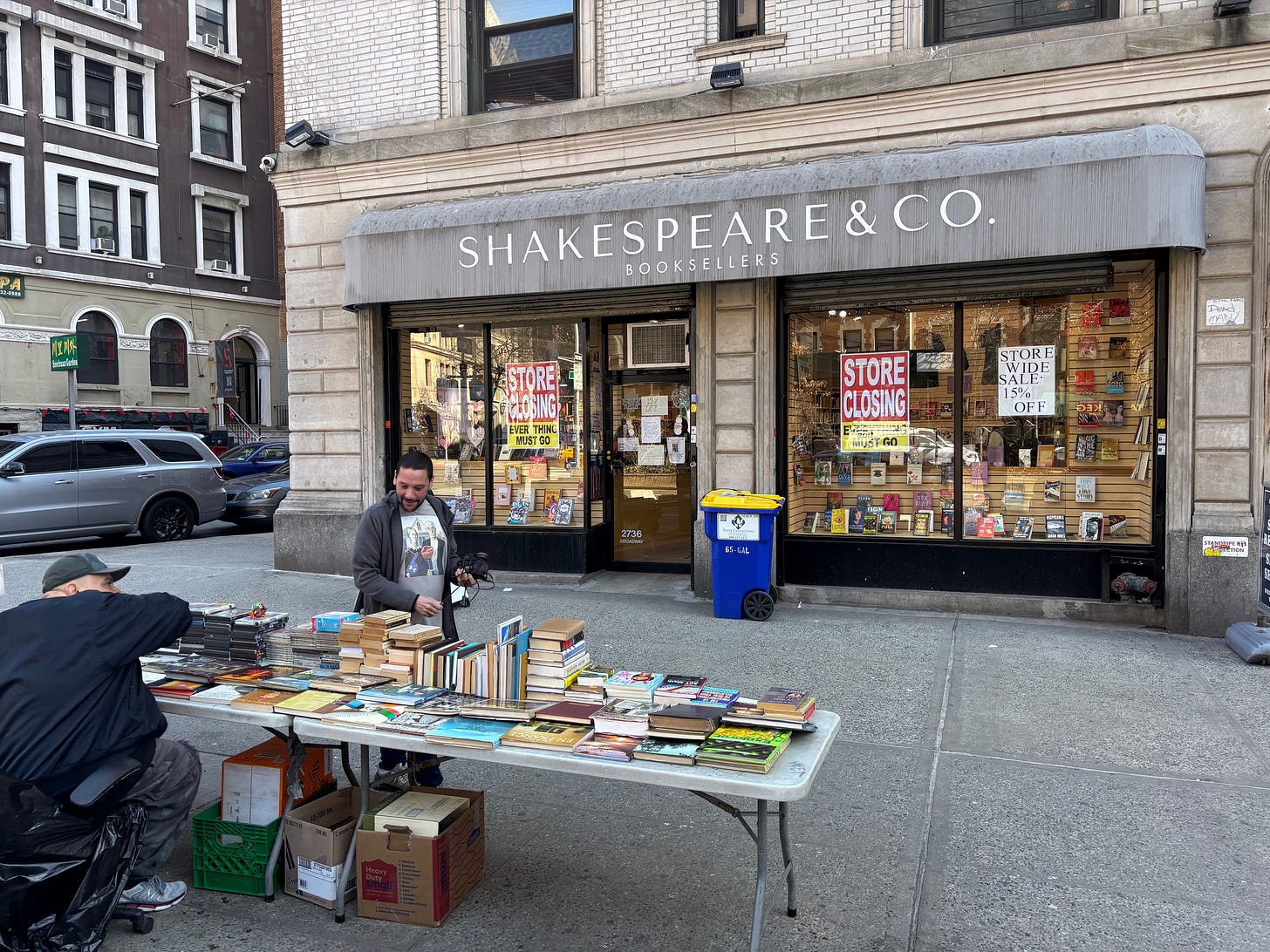
Great read of a sad story. I'm not helping much. I buy used books unless they're newly authored. I buy those from Amazon and I need to stop!
Sorry to see a bookstore go... but... Shakespeare & Co. is a chain just like Barnes and Noble. There already is a Shakespeare & Co store on the Upper Westside of Manhattan. There are also at least two other long standing REAL independent bookstores within a 10 block area from the 105th store as well as Columbia University's bookstore. In my opinion, it was poor planning to open that store at this location. Not only that, opening a chain store of this size only drives up commercial real estate rent to make it more difficult for a mom & pop store to open and survive in this area - such as the doomed result of the closing of Silver Moon Bakery.